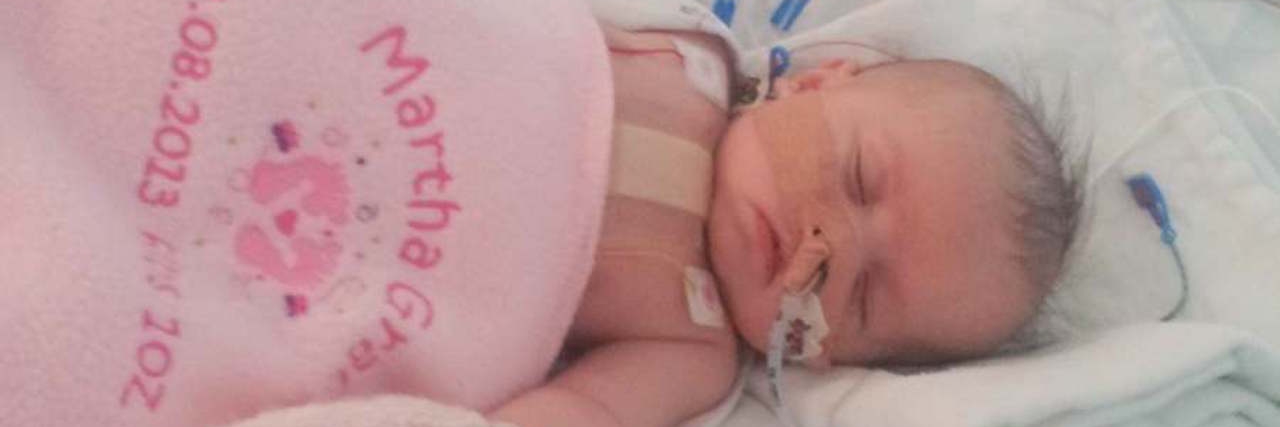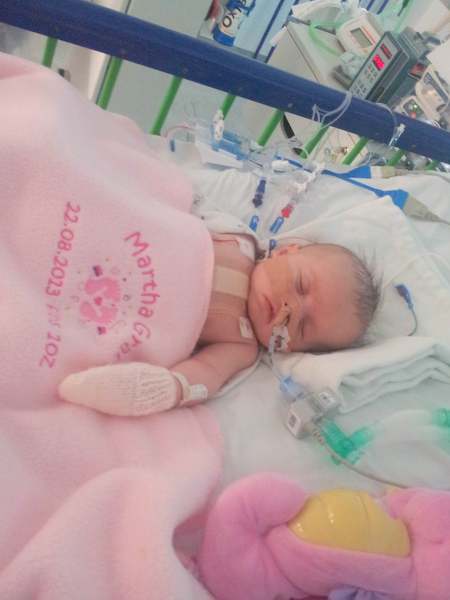To the Mom Who Just Found Out Her Baby Has a Congenital Heart Defect
So much has happened since that fateful day in April 2013 when our lives were changed cataclysmically.
I remember trying to think logically when we came back from our 20-week scan and telling myself, “But blood is being pumped around her body, every part of her has developed and grown and she is still alive. It can’t be that bad.” I had no idea how a fetal heart worked back then. Little did I know that the arterial duct was my baby’s lifeline. But now I could probably label every valve, artery, ventricle and atrium on a diagram of the human heart.
Looking back at that day, I wondered what I tell myself about the journey we were about to embark on.
To the Mom Who Just Found Out Her Baby Has a Congenital Heart Defect,
You haven’t done anything wrong, and there is nothing you could have done differently to avoid this from happening to your unborn baby. In fact, I don’t think you’ll ever get to know why this happened to your baby. You’ll meet countless other parents over your child’s lifetime who will wonder the same thing from time to time. It’s OK to ask, “Why me and why our baby?” But just don’t let yourself dwell on that too much.
I know the thought that scares you the most right now is surgery. You’re handing over your baby to people you don’t know, and you have to put complete trust in them they’ll take care of your baby. I promise you they will. But it won’t always be smooth sailing when she comes back up to intensive care. It’s just the beginning. Some days it will seem like you’ve taken two steps forward only to take six steps back. But that’s because she wasn’t ready to take those steps. She was being pushed a bit too hard and wanted to remind you that she’s in charge of her own recovery. She will go at her own pace. But when she is ready, she will amaze you. She will come on in leaps and bounds. Some weeks you won’t believe she’s the same baby who you were crying over the week before.
The instinct to protect and fight for your baby will become all the more prevalent. You will learn your baby’s baseline for everything. You will know how much of each drug she should have and watch as each nurse draws up those meds to make sure they’ve done it properly. If a new doctor comes along and suggests a new treatment plan, you’ll question them on why they’re considering these changes and scrutinize all of their ideas. This is OK. You’re her mom, and you’d rather have her cardiologists face the Spanish Inquisition than watch your daughter possibly deteriorate because someone had a new idea. But remember to listen to everything they suggest. They only want what’s best for your baby, too.
Talk to the parents of other babies in the ward. They will be a massive support to you, just as you can be to them. No one will understand your fears better than them. Never underestimate how valuable your experience might be to someone in a similar position. And hearing someone else’s good news will give you hope and strength to fight another day for your baby.
Every achievement and every milestone your baby reaches will leave you bursting with pride. The first time she can eat orally will be your proudest achievement (even if it’s just a tiny bit). But nothing can compare to the day when they say you can take her home. No money in the world could buy that level of happiness. Yes, it will be scary not having a nurse on duty 24/7 or having that trusty monitor displaying her heart rate, blood pressure or oxygen saturation levels. But you’ll probably know your baby isn’t feeling well just by looking at her.
Finally, just take each day as it comes. There may even be occasions when you can only cope by taking each hour at a time. Don’t try to be strong for everyone either. Look after yourself and your baby. If a psychologist visits and asks if you’d like to talk, please accept their offer. There’s a reason why they’re there.
It’s a hell of a journey you are about to embark on, but I promise it’s worth it.
GM
Follow this journey on Heart Mammi.


